Health & Medicine
-
 Health & Medicine
Health & MedicinePositive attitudes about aging may pay off in better health
Research into the mind-body connection shows that attitude is everything when it comes to healthy aging.
-
 Health & Medicine
Health & MedicineReaders inquire about measles, vaccine hesitancy and more
Readers had questions about vaccine-hesitant parents, measles and DNA sequencing.
-
 Science & Society
Science & SocietyYou’re only as old as you perceive yourself to be
Editor in Chief Nancy Shute discusses how people’s attitudes about aging can impact our physical health.
By Nancy Shute -
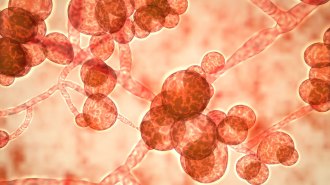 Health & Medicine
Health & MedicineClimate change could raise the risk of deadly fungal infections in humans
The rise of Candida auris, a deadly fungus spurring outbreaks in the United States and worldwide, may have been aided by climate change.
-
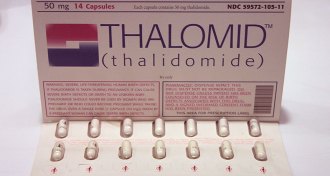 Health & Medicine
Health & Medicine50 years ago, a drug that crippled a generation found new life as a leprosy treatment
In 1969, a drug that crippled a generation found new life as a treatment for leprosy.
-
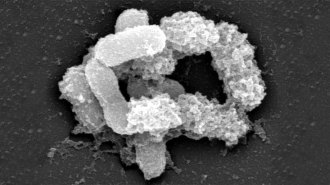 Neuroscience
NeuroscienceBoosting a gut bacterium helps mice fight an ALS-like disease
Gut bacteria may alter ALS symptoms for good or ill.
-
 Health & Medicine
Health & MedicineBotox may relieve persistent pelvic pain caused by endometriosis
The wrinkle-smoothing treatment Botox may relieve pain from muscle spasms in the pelvic floor of women with endometriosis.
-
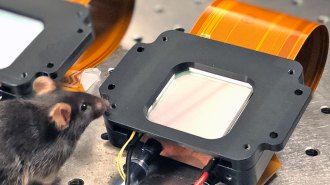 Health & Medicine
Health & MedicineManipulating nerve cells makes mice ‘see’ something that’s not there
Using optogenetics to stimulate about 20 nerve cells causes mice to perceive nonexistent vertical or horizontal lines.
-
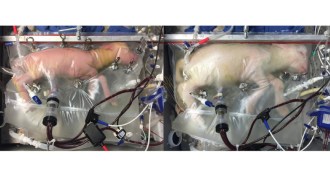 Tech
Tech50 years ago, lambs survived but didn’t thrive inside artificial wombs
Artificial wombs to support preemie babies are closer to reality.
-
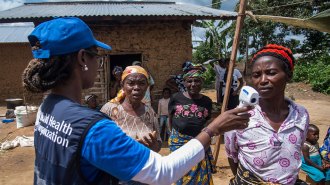 Health & Medicine
Health & MedicineWHO declares a public health emergency over Congo’s Ebola outbreak
The yearlong Ebola outbreak in the Congo has been declared a public health emergency by the World Health Organization.
-
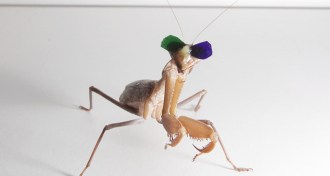 Health & Medicine
Health & MedicineTiny glasses help reveal how praying mantises can see in 3-D
Newfound nerve cells in praying mantises help detect different views that each of the insects’ eyes sees, a mismatch that creates depth perception.
-
 Health & Medicine
Health & MedicineToddlers tend to opt for the last thing in a set, so craft your questions carefully
Two-year-olds demonstrate a verbal quirk that makes their answers less reliable.